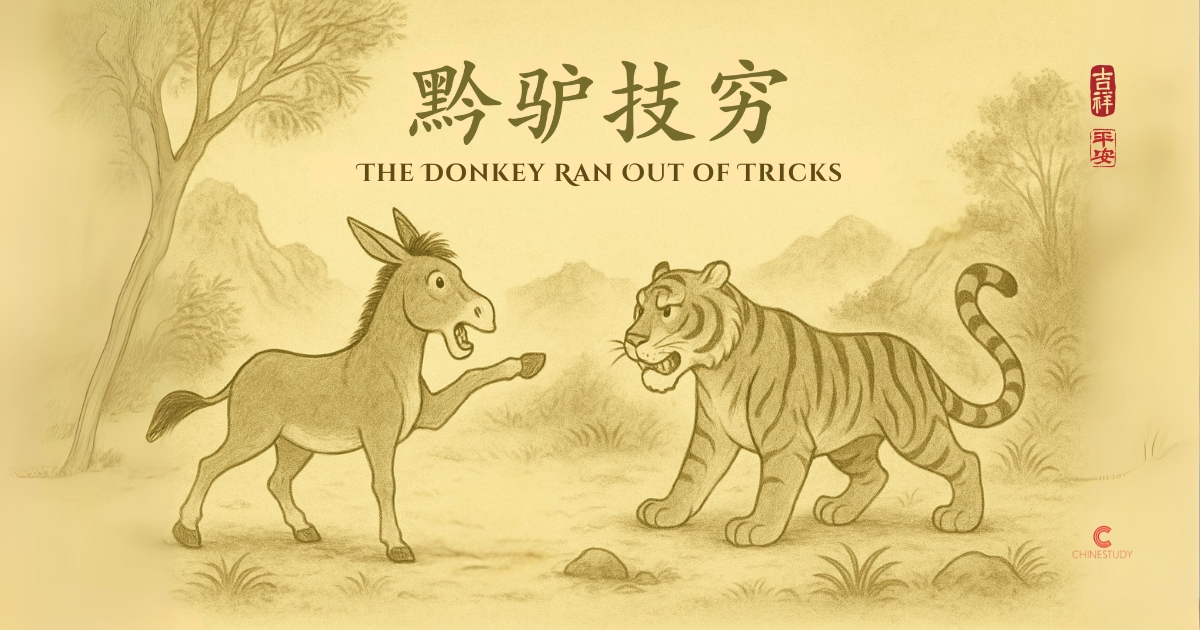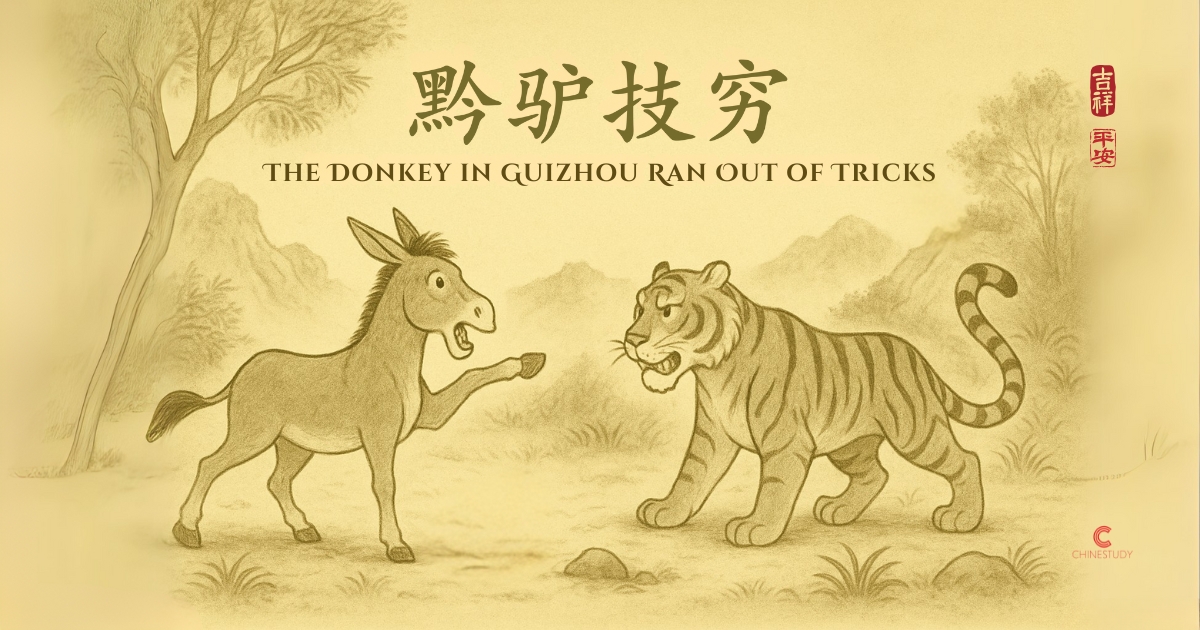🫏 黔驴技穷 qián lǘ jì qióng – The Donkey Ran Out of Tricks

🔍 What It Means
黔驴技穷 (qián lǘ jì qióng) literally means “the donkey in Guizhou has no more tricks.”
Word-for-word:
- 黔 (qián) – Guizhou (a province in southwest China)
- 驴 (lǘ) – donkey
- 技 (jì) – skill or trick
- 穷 (qióng) – used up, exhausted
It describes someone who has shown all they can do — and has nothing left to offer. It often implies that their abilities were limited to begin with.
In English, it’s like saying:
- 🪄 “Out of tricks”
- 🤷 “That’s all they’ve got”
- 🎭 “All bark, no bite”
🏺 Where It Comes From
This idiom comes from an old story by Liu Zongyuan.
Long ago in Guizhou, there were no donkeys.
One day, someone brought one in by boat and left it at the foot of a mountain.
A tiger saw the strange animal and didn’t dare go near.
So it hid in the woods, watching quietly.
Over time, the tiger grew bolder and crept closer.
One day, the donkey let out a loud bray.
The tiger jumped — was this creature dangerous?
But… nothing happened.
Days passed.
The tiger got used to the sound.
It even bumped into the donkey. Still, no danger.
Finally, the donkey got angry and kicked.
That was it.
The tiger laughed, realizing that was its only trick.
So it pounced, killed the donkey, and ate it.
That became a metaphor:
- When someone has only a few weak skills — and they’ve already used them — they’re out of tricks and exposed.
💬 How to Use It
Use 黔驴技穷 when someone runs out of ways to impress, trick, or defend themselves — usually because their skills were never deep to begin with.
- ✅ Often used to describe weak strategies, shallow talent, or repetitive behavior
- ✅ Common in debates, sports, workplace, or joking criticism
🎯 Real Examples
1. 他一开始说得头头是道,后来黔驴技穷,只能重复自己说过的话。
- Tā yì kāishǐ shuō de tóutóushìdào, hòulái qiánlǘjìqióng, zhǐ néng chóngfù zìjǐ shuō guò de huà.
- 👉 At first he spoke confidently, but later ran out of ideas and just repeated himself — totally out of tricks!
2. 对方的花招太少了,几回合后就黔驴技穷,我们轻松赢了。
- Duìfāng de huāzhāo tài shǎo le, jǐ huíhé hòu jiù qiánlǘjìqióng, wǒmen qīngsōng yíng le.
- 👉 Their tricks were so limited — after a few rounds, they had nothing left, and we won easily.
⚠️ Common Mistakes (Watch Out!)
❌ Mistake: Using this idiom to describe someone talented or mysterious
✅ Correct: It means their abilities are limited and they’ve run out of options
❌ Mistake: Thinking it means “exhausted” in general
✅ Correct: It’s about skills being used up, not physical tiredness
💡 Memory Tip

Picture a big, loud donkey showing off in front of a tiger.
The tiger waits, watches…
The donkey kicks. Stomps. Shouts.
Then… nothing.
The tiger smiles — “Is that all?”
That’s 黔驴技穷 — when someone runs out of tricks, and their weakness is exposed.
🧩 Interactive Practice
Translate this sentence into English:
- 他的办法都试过了,现在已经黔驴技穷了。
Answer:
He’s tried everything — now he’s out of tricks.
🌟 Final Thoughts
黔驴技穷 reminds us that showing off doesn’t last long if there’s no real depth.
When all your tricks are used up — what’s left?
☝️ Ask yourself: Is it real strength... or just noise before the silence?
👉 Stay tuned for the next idiom in this series!
Thank you for subscribing!
Have a great day!